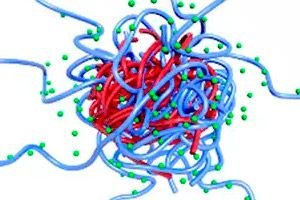
All iLive content is medically reviewed or fact checked to ensure as much factual accuracy as possible.
We have strict sourcing guidelines and only link to reputable media sites, academic research institutions and, whenever possible, medically peer reviewed studies. Note that the numbers in parentheses ([1], [2], etc.) are clickable links to these studies.
If you feel that any of our content is inaccurate, out-of-date, or otherwise questionable, please select it and press Ctrl + Enter.
Spermidine, a substance that can prolong life.
Last reviewed: 02.07.2025
 ">
">Scientists have discovered that a substance called spermidine has the ability to prevent liver cancer and prolong life. Spermidine can enter the body with food - for example, a sufficient amount of it has been found in mushrooms, bran bread and blue cheese.
Initially, American scientists from the University of Texas conducted research on mice and found that the consumption of spermidine by animals prevented the development of intrahepatic cancer processes, fibrous tissue changes and other liver diseases. In addition, scientists were expecting another piece of good news: mice that regularly consumed spermidine lived a quarter longer than their peers.
What is this amazing substance spermidine? Actually, it is a polymer consisting of a chain of amino groups. It was first isolated from sperm, which gave the substance its corresponding name.
In fact, spermidine is not only found in semen. It is found in large quantities in lentils, soy products, whole grains, mushrooms, grapefruit, and especially in blue cheese, a cult food among gourmets.
It has already been proven a little earlier that spermidine strengthens blood vessels and stabilizes blood pressure. Now scientists have found out that these are far from all the benefits of this substance.
The experiment was conducted on rodents that had a congenital predisposition to liver cancer and fibrosis. The animals were fed food containing spermidine and their health was monitored.
"As it was found, spermidine supplements significantly reduced the risk of developing cancer or fibrous processes, and the experimental animals lived longer than other rodents that did not receive such supplements. At the same time, the difference in life expectancy was 25% - and this is a very large figure, especially by human standards. It turns out that instead of 75 years, a person can easily live a hundred years," the author of the study admires the result.
However, it is worth remembering that the experimental rodents consumed spermidine throughout their entire lifespan, constantly and in large quantities. If supplements with the substance are taken later and in smaller quantities, lifespan can be increased by only 10%.
The study found that spermidine can reverse the body's internal circadian rhythms, "rejuvenating" them and reducing the risk of age-related diseases. Experts have proven that a decrease in polyamine levels leads to the inhibition of circadian rhythms and age-related changes. Polyamines are of great importance in biological processes, as they fundamentally affect the function of the "internal clock".
Thus, spermidine use may lead to modulation of the body's internal clock. Disruptions in circadian rhythms, in turn, may lead to a number of age-related diseases, including cancer, inflammation, and even senile dementia.
In the near future, scientists plan to conduct similar studies on humans, as they are confident that spermidine can improve the quality of life of people on the planet.

 [
[